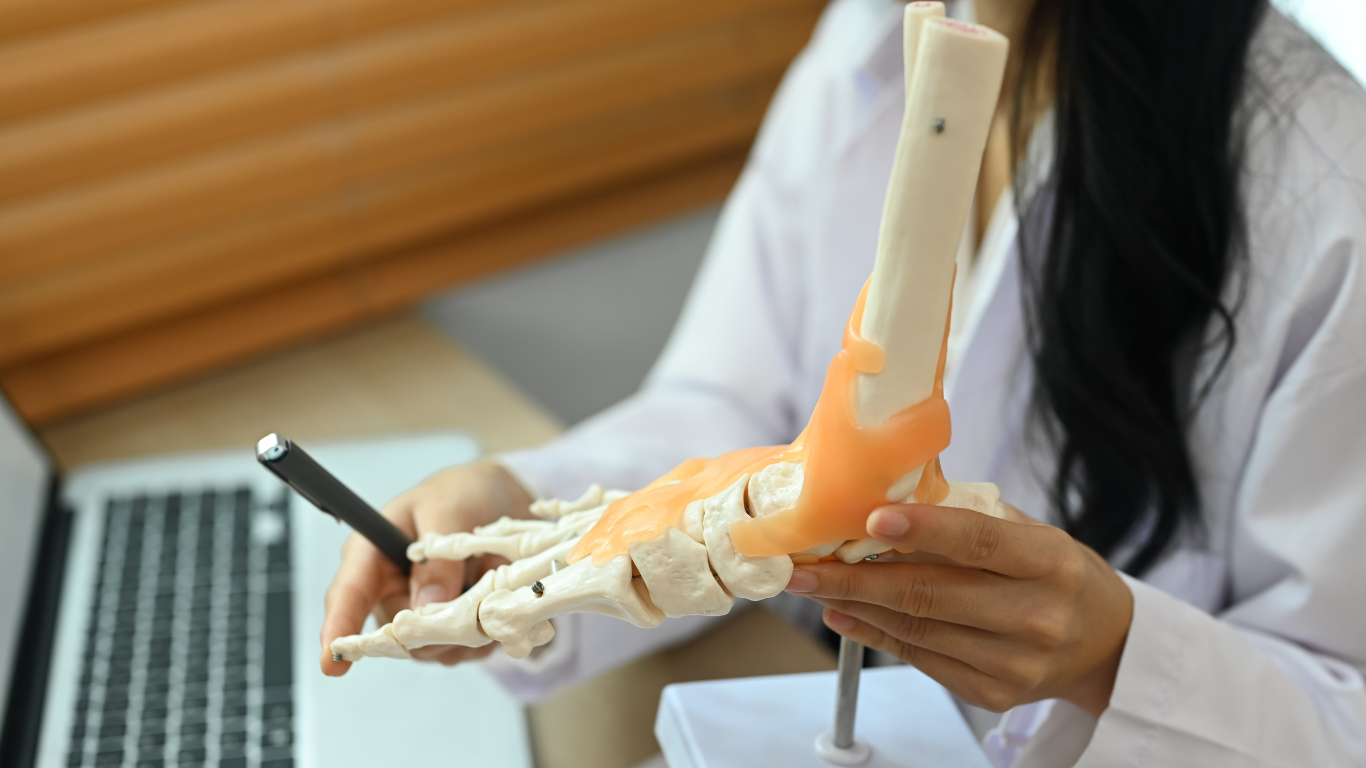Shoulder surgery is a major step towards relieving pain and restoring mobility, but the journey can be daunting without proper preparation and understanding. In this comprehensive guide, we’ll explore the key aspects of shoulder surgery and recovery, offering insights to help you navigate the process with confidence. Dr. Max, a leading orthopedic surgeon, shares his expertise to ensure you are fully informed and prepared for your surgery and the path to recovery.
Understanding Shoulder Surgery: Types and What to Expect
Different Types of Shoulder Surgery
Before diving into the details of preparation and recovery, it’s crucial to understand the types of shoulder surgeries available. Dr. Max often performs:
- Rotator Cuff Repair: Commonly required for tears in the shoulder tendons, this surgery aims to restore the shoulder's function and reduce pain.
- Shoulder Arthroscopy: A minimally invasive procedure used to diagnose and treat various shoulder conditions, such as torn cartilage or ligaments.
- Total Shoulder Replacement: In cases of severe arthritis, this surgery replaces damaged parts of the shoulder joint with artificial components.
- Shoulder Stabilization Surgery: Often performed for patients with recurrent shoulder dislocations, this surgery aims to tighten the joint and prevent further instability.
Understanding the specific type of surgery you’ll undergo helps set realistic expectations and prepares you mentally for the recovery process.
Before Surgery
Preparing for shoulder surgery is a crucial step that can significantly impact your overall experience and recovery. By taking the time to understand the process, make the necessary preparations, and optimize your health, you set the stage for a smoother surgical procedure and a quicker return to your normal activities. In this section, we’ll explore the key elements you should focus on before undergoing shoulder surgery, guided by Dr. Max's expert recommendations.
The Importance of Pre-Operative Preparation
Physical and Mental Readiness
Preparing your body and mind for shoulder surgery can significantly impact your recovery. Dr. Max emphasizes the importance of:
- Strengthening Exercises: Engage in targeted exercises to build strength in the shoulder muscles, as stronger muscles can aid in a quicker recovery.
- Nutritional Optimization: A balanced diet rich in vitamins, minerals, and proteins supports healing. Consider consulting with a nutritionist to develop a pre-surgery meal plan.
- Mental Preparation: Undergoing surgery can be stressful. Understanding the process and setting realistic expectations can alleviate anxiety. Techniques such as meditation or counseling might also be beneficial.
Proper preparation not only enhances the surgical outcome but also empowers you to take control of your recovery journey.
Preparing Your Home for Recovery
Creating a Healing Environment
Recovering from shoulder surgery can be challenging if your home isn’t set up to accommodate your needs. Here’s how to prepare:
- Accessible Essentials: Arrange frequently used items within easy reach to avoid straining your shoulder.
- Comfortable Sleeping Area: Consider using extra pillows to support your shoulder while sleeping. Some patients find it more comfortable to sleep in a reclined position during the initial recovery phase.
- Assistance with Daily Activities: Tasks like dressing, cooking, and bathing may require help. Arrange for a family member or caregiver to assist you during the first few weeks.
A well-prepared home can make your recovery more comfortable and less stressful.
After Surgery
The period immediately following shoulder surgery is critical to your recovery. Understanding what to expect and how to care for your shoulder during this time can help you manage pain, reduce complications, and get back on your feet faster. In this section, we’ll delve into the essential aspects of post-operative care, including pain management, physical therapy, and the initial stages of rehabilitation, ensuring you’re well-prepared for the journey ahead.
What to Expect Immediately After Surgery
The First 24-48 Hours
Post-operative care is critical in the first 24-48 hours after shoulder surgery. Here’s what to expect:
- Hospital Stay: Depending on the type of surgery, you may stay in the hospital for observation. Dr. Max’s team will monitor your vital signs and ensure there are no immediate complications.
- Pain Management: Pain is a natural part of the healing process, and you’ll be provided with medications to manage discomfort. Ice packs may also be used to reduce swelling.
- Movement and Immobilization: Your arm will likely be immobilized in a sling to protect the surgical site. Dr. Max will advise you on when and how to begin gentle movements to prevent stiffness.
Understanding these early stages of recovery helps you mentally prepare for the initial discomfort and limitations.
The Role of Physical Therapy in Recovery
Rehabilitation is Key
Physical therapy is a cornerstone of recovery after shoulder surgery. Dr. Max emphasizes:
- Starting Early: Physical therapy typically begins within a few days post-surgery. Early intervention helps prevent stiffness and promotes healing.
- Progressive Exercises: Your therapist will guide you through a series of exercises designed to restore range of motion, strengthen the shoulder, and improve flexibility. These exercises will evolve as you recover.
- Consistency is Crucial: Adhering to your physical therapy schedule is vital for optimal recovery. Regular sessions will significantly impact the speed and success of your rehabilitation.
Following Dr. Max’s tailored physical therapy plan is essential for regaining full shoulder function.
Managing Pain and Discomfort During Recovery
Pain is Part of the Process
Experiencing pain and discomfort after shoulder surgery is normal, but effective management can make the recovery more bearable. Dr. Max recommends:
- Medication: Take prescribed pain relievers as directed. Over-the-counter medications may also be used for mild pain, but always consult with your doctor first.
- Ice Therapy: Regularly applying ice packs can reduce swelling and numb the area, providing relief.
- Rest and Elevation: Proper rest is crucial. Elevating your arm on pillows can reduce swelling and improve circulation, aiding the healing process.
Learning to manage pain effectively is key to staying comfortable and motivated during recovery.
Other things to consider
Recovery from shoulder surgery involves more than just physical healing. There are various other factors, such as psychological well-being, lifestyle adjustments, and long-term care, that play a vital role in your overall recovery. In this section, we’ll discuss additional considerations that can enhance your recovery experience, including mental health, and the gradual return to your daily activities. Dr. Max provides insights to help you navigate these aspects with confidence and ease.
The Psychological Aspect of Recovery
Staying Positive and Motivated
The mental and emotional aspects of recovery are just as important as the physical ones. Dr. Max advises:
- Setting Realistic Goals: Recovery can be slow, and it’s important to set achievable goals to avoid frustration.
- Staying Connected: Isolation can lead to feelings of depression. Stay in touch with family and friends, and don’t hesitate to reach out if you’re feeling down.
- Celebrating Milestones: Recognize and celebrate small victories along the way. Whether it’s regaining a bit of mobility or completing a physical therapy session, every step forward is progress.
Maintaining a positive mindset is crucial for a successful recovery.
Long-Term Recovery: What to Expect
Patience and Persistence
Full recovery from shoulder surgery can take several months. Dr. Max highlights:
- Gradual Improvement: You may see significant progress within the first three months, but full recovery could take up to a year.
- Ongoing Therapy: Continuing with physical therapy and exercises at home is vital for maintaining and improving your shoulder function.
- Regular Follow-Ups: Dr. Max will schedule regular follow-up appointments to monitor your progress and adjust your treatment plan as needed.
Understanding the long-term nature of recovery helps set realistic expectations and encourages persistence.
Returning to Daily Activities and Sports
Getting Back to Normal
One of the most common concerns after shoulder surgery is when you can return to your usual activities. Dr. Max advises:
- Gradual Resumption: Start with light activities and gradually increase your level of exertion. Dr. Max will guide you on when it’s safe to resume more demanding tasks or sports.
- Listen to Your Body: Pay attention to any signs of pain or discomfort. If something doesn’t feel right, stop and consult Dr. Max.
- Modifications May Be Needed: Depending on the nature of your surgery and your lifestyle, some modifications may be necessary to avoid re-injury.
Returning to daily activities and sports is a gradual process, and following Dr. Max’s guidance is essential for a safe transition.
Conclusion
Undergoing shoulder surgery is a significant step toward improving your quality of life, but it requires preparation, patience, and dedication. By understanding what to expect and following Dr. Max’s expert advice, you can navigate the process with confidence. From pre-operative preparation to long-term recovery, each phase is crucial for achieving the best possible outcome. Remember, Dr. Max and his team are here to support you every step of the way.


.png)


